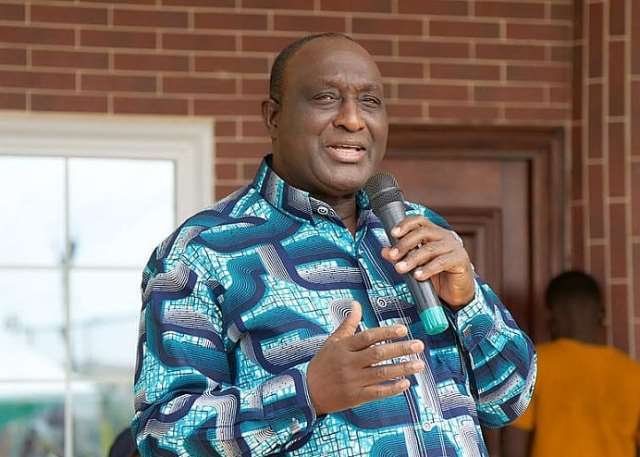Independent Presidential Candidate Alan Kyerematen has urged voters in the upcoming 2024 general elections to exercise caution when approached by politicians offering financial incentives. Speaking at a campaign rally in Obogu, situated in the Ashanti Region, Kyerematen, a former member of the ruling New Patriotic Party (NPP), highlighted a troubling trend where politicians appear only during election seasons to distribute money to sway votes. He contended that such actions demonstrate a lack of respect for the electorate and urged those present to reconsider before accepting such offers. He emphasized that these politicians, who neglect their constituents until elections are imminent, should be rejected at the ballot box.
Kyerematen’s sentiments reflect a broader critique of political behavior in Ghana, calling for a paradigm shift in how politicians engage with the electorate. He pointed out that genuine political involvement should focus on the development and welfare of the country rather than transactional relationships built around monetary exchange. He encouraged voters to think critically and recognize the implications of accepting short-term handouts instead of demanding accountability and long-term commitment from their leaders. His message resonates with many who feel disillusioned by political cycles that prioritize electioneering tactics over substantive governance.
The message from Kyerematen comes as he ramps up his campaign efforts across Ghana, attempting to convey his vision for the nation and garner support for his candidacy. He has outlined a comprehensive “Great Transformational Plan,” designed to tackle the myriad challenges facing Ghana today, from economic hardships to insufficient institutional support. Kyerematen believes that his approach will facilitate lasting change and development, urging the electorate to view him as a transformative figure capable of leading the country toward a more prosperous future.
In his speeches, Kyerematen emphasizes the need for a collective reevaluation of political engagement, encouraging citizens to hold politicians accountable not only during elections but throughout their terms in office. By demanding a departure from the norm of receiving donations and instead expecting tangible contributions to their communities, he hopes to inspire a more enlightened electorate. This shift would ensure that political leaders understand the need for ongoing dialogue and support, fostering a political environment that prioritizes citizens’ needs over opportunistic exchanges.
Kyerematen’s call to action resonates with many who have become weary of political figures treating elections as mere opportunities for financial gain rather than as moments to engage in meaningful governance. His advocacy for higher standards in political conduct underscores the importance of electing leaders who prioritize service and development over short-term gain. By capturing the attention of voters, Kyerematen hopes to mobilize a movement focused on substantive change, encouraging citizens to reflect deeply on their electoral choices and the motives of those who seek their votes.
In summary, Alan Kyerematen’s message at the Obogu rally reflects a growing dissatisfaction with the transactional nature of contemporary politics in Ghana. As he outlines his plans for national development and encourages voters to reject superficial offers from politicians, his appeal resonates with a citizenry eager for genuine leadership. His campaign represents not just a personal bid for the presidency but also a broader call for systemic change within Ghana’s political landscape, advocating for a future where political engagement is grounded in respect, accountability, and shared responsibility for national progress.














